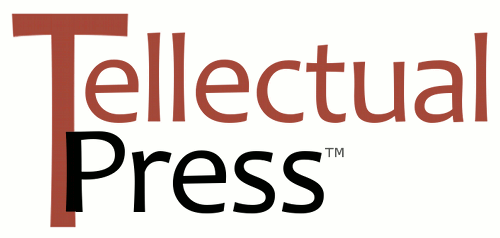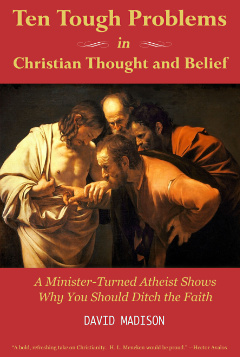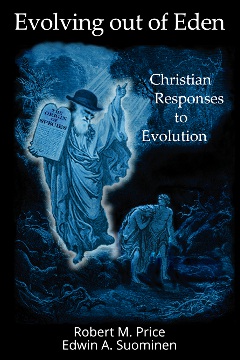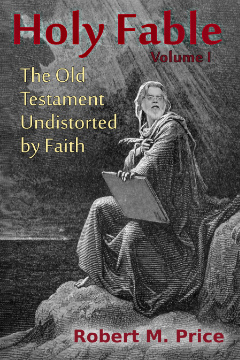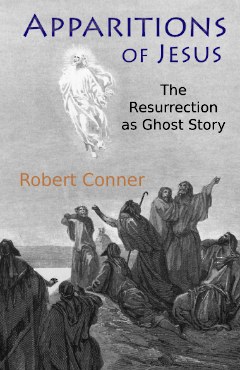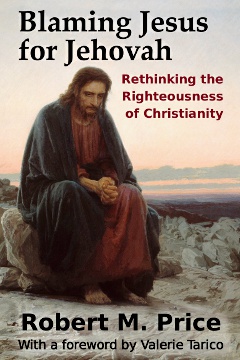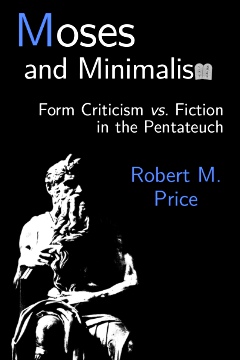Preface: Freedom to Doubt
Freedom to Doubt includes a heartfelt Preface from its author Charles Shingledecker about the importance of doubt to honest faith. Here it is, with an aside about our use of balloon-caption illustrations to lighten things up.
Our increasingly skeptical age bombards us Christians with reasons to doubt the veracity of our faith. Atheists, free thinkers, and skeptics attack and criticize the Bible, Christian doctrine, and creationism. They relentlessly point out theological quandaries and contradictions. And I believe that they’re right to do so!
Unlike many of my Christian brethren, I agree with many if not most of the criticisms that modern critics of religion level against it, specifically Christianity. (Perhaps the clearest and loudest of these “New Atheist” voices are Richard Dawkins, Sam Harris, Daniel Dennett, and the late Christopher Hitchens.) I do not feel as if their “attacks” are unfounded, offensive, or blasphemous. They are only doing what we Christians should be doing ourselves—questioning the status quo, and challenging the absurdities of a religious fundamentalism that knows it is right and everyone else is wrong.
It is important to note, however, that I did not always feel this way. There was a time, not so long ago, when I was deeply offended by anyone who would dare to question the Bible, the Church, or God. I have lived the fundamentalist and über-pious side of faith on a deeply emotional and intellectual level. Baptized Roman Catholic, but raised in a religiously tolerant home, I was “born again” at the age of nineteen. I spent most of my twenties trying to make sense of the contradictory claims of competing Evangelical Protestant denominations and traditions, while simultaneously believing that Jesus had saved me and could do the same for everyone else, too!
For many years, I was sure that the Bible was the infallible word of God, that the earth was six thousand years old, that all non-Christians (which included Roman Catholics and most Lutherans) were not actually Christian and therefore were going to burn in hell for all eternity. But Jesus loved them, and me, so much that he suffered, died, and rose from the dead! I knew all this to be fact, as much as I knew the earth was round. Or did I?
Go ahead. Laugh when they only want you to cry.
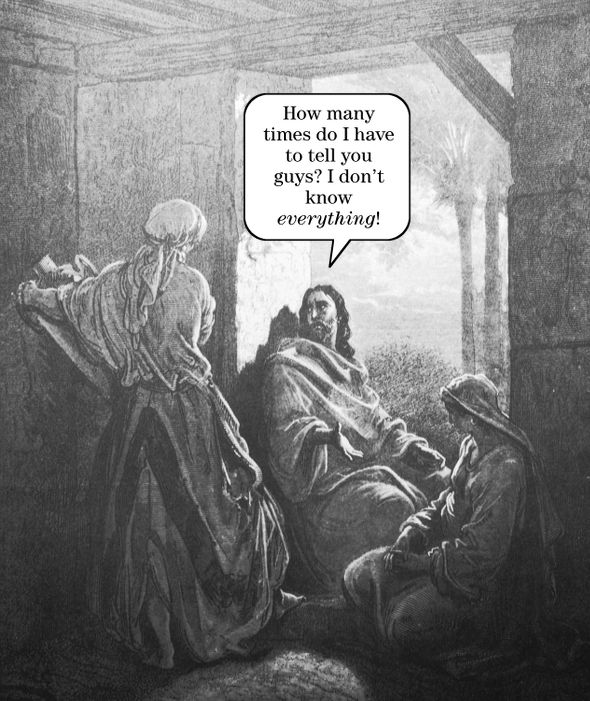
Who says you can’t have a little fun when discussing serious things? We tried to lighten the mood in Freedom to Doubt using some of Gustav Doré’s fine old Bible engravings, embellished with captions that might make you smile as you nod your head about the difficulties of professing an honest faith.
To be honest, I’ve always had the voice of doubt whispering in the back of my mind. In my youth and late teens, before I became an overly zealous Christian, those doubts were not a problem. Doubt, after all, leads people to ask questions. I was always taught that asking questions is an admirable action, which should not be hampered in any way. The old saying is that there are no stupid questions, only stupid answers. But once I was “born again,” doubt became something to be fought, suppressed, even feared. Questions became downright dangerous. If I allowed Satan to plant “the seeds of doubt” within me, I might lose my faith entirely. And so, like so many other troubled Christians, I had to keep my doubts and questions to myself. I fought them, sometimes even believing them to have been sent from the pit of hell.
Today I realize that Satan didn’t need to plant any seeds of doubt within me. They were always there, as they are for every single Christian on earth. All the writings of Christian apologists attest to that. If doubt weren’t part of a Christian’s life, would there be any need for all of those books defending the faith? Unbelievers aren’t the ones reading them.
And so that small voice of doubt urged me to ask questions. I couldn’t ignore them, not even simple ones like, “How do we know that a guy named Mark actually wrote the Gospel of Mark?” Many Christians would probably say, as did I, “Because it says so right there in the Bible!” The problem is that it doesn’t say that. The actual Greek manuscripts are anonymous documents that later Churchmen labeled “the Gospel According to . . . Mark.” This little fact, as small as it is, was the catalyst for me to begin what turned out to be an intense decade-long study of the Bible, Christian origins, and Church history.
I devoured the writings of New Testament scholars, Church historians, theologians, and archaeologists, as well as the early Christian writers of the first through eighth centuries, who are commonly known as the Church fathers. (Alas, there are no Church mothers to speak of.) I made a serious, albeit only partly successful, attempt at teaching myself New Testament Greek. Ultimately, this exploration of the history of Christianity led me to discover the Eastern Orthodox Church, which I joined in 2003.
For a number of years I was, like so many American converts to Orthodoxy, extremely zealous about my new faith. Finally, I had found “the one true Church of Christ.” Yet, after numerous emotional and spiritual tragedies, that childlike–or rather childish–zeal began to fade. The still, small voice of doubt began to haunt me once more–but this time things were different. This time, someone who had also struggled with doubt for many years told me something very important: Do not fear your doubts.
Those were the exact words that were spoken to me. Those five little words freed me, ever so slowly, from the bondage of hidden fears that had so enveloped me for much of my Christian life. They gave me permission to not just confront my doubts but embrace them. Those words enlighten me to this very day, and they inform everything that is to follow in the pages to come. If there is one thing I want people to take away from this book, it is those five words: Do not fear your doubts!
